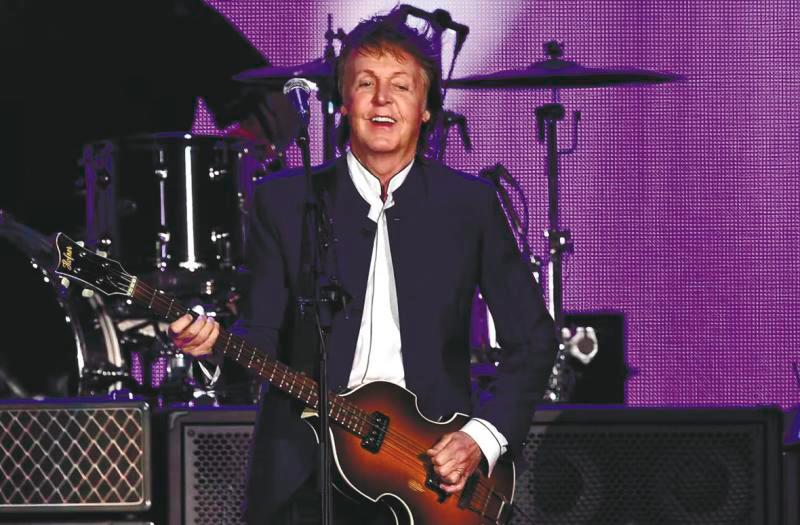GREAT bands were distinguished by their musical identity and performances. But great music is characterised by a precise musical progression and a rhythmic bass with a low frequency that catches the listeners’ hearts.
Bassists were often overlooked and undervalued, even within their own bands. “It wasn’t the number-one job,” McCartney once said, reflecting on the fateful moment he took over the four-string after Stu Sutcliffe exited the Beatles. “Nobody wanted to play bass, they wanted to be upfront.”
Nevertheless, bassists may not be at the forefront of a band, but they are when it comes to musical development. Despite its concealed and subtle sound, the bass frequency plays an essential part in music. Simply said, the bass is fundamental in music and vital in a band because it bridges the gap between the treble (guitar) and the percussion (drums), serving both a rhythmic and a harmonic purpose.
Let’s get to know these legends, unsung heroes and pioneers who may have contributed to the greatness of bass in music.
Paul McCartney (The Beatles)
Where do we even begin when evaluating Paul McCartney? Perhaps due to the fact that the world’s biggest rock star will always be best known as a bassist. There is no other accurate way to define him but as an “instrument pioneer.” When he began playing bass in 1960, no one cared, but rather than settle for uninteresting sections, McCartney set out to make the bass sound fascinating.
After Stu Sutcliffe left the Beatles in Hamburg in 1961, McCartney initially began playing bass out of necessity. He told author Barry Miles that there is a hypothesis that he intentionally pushed Stu out of the group in order to obtain the bass spot but explained “nobody wants to play bass, or nobody did in those days!”
Fortunately, he made it his own, especially as the Beatles’ studio endeavours accelerated in the second half of the 1960s, and he replaced his Hofner with a Rickenbacker.
His humorous, lyrical style in that era owed much to James Jamerson of Motown, whom he frequently cites as his greatest influence on the instrument. While his love for the four-string instrument has waxed and waned over the years, he has never stopped inspiring new generations to recognise the expressive potential of a beautiful bass line.
Colin Greenwood (Radiohead)
Colin Greenwood is Radiohead’s unrecognised genius. While Radiohead is indisputably the sum of its parts, with each member contributing something significant, it is often lead guitarist Jonny Greenwood and frontman Thom Yorke who bask in the spotlight.
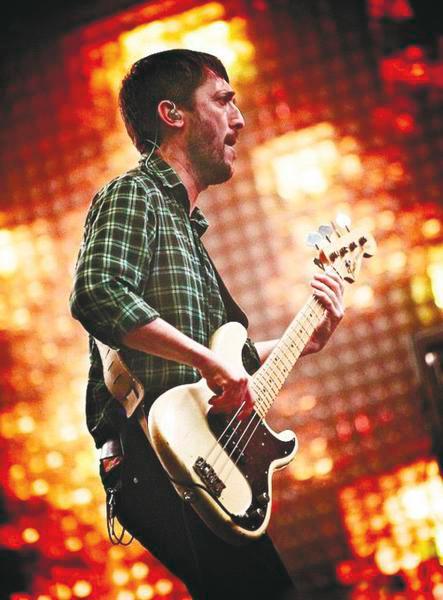
Colin, an exceptional bassist and multi-instrumentalist, is the band’s secret weapon and unquestionably their most underestimated member. The ice-cold syncopated grooves that the band performs so expertly, would not exist without his contribution.
He pairs with the drummer, Phil Selway, and delivers some of the most astonishing and effective basslines in modern music, leaving lots of space in a measure and frequently choosing to fit his work into the off-beats, allowing the band to create the glitchy, futuristic work that made everything after the OK Computer album groundbreaking.
Cliff Burton (Metallica)
James Hetfield, Dave Mustaine, and Lars Ulrich did meet Cliff Burton, who only intended to play finger-breaking thrash metal when they formed Metallica. Metallica relocated from Los Angeles to the bassist’s native Bay Area at his request after seeing him do a jaw-dropping bass solo while performing with a rival metal band.
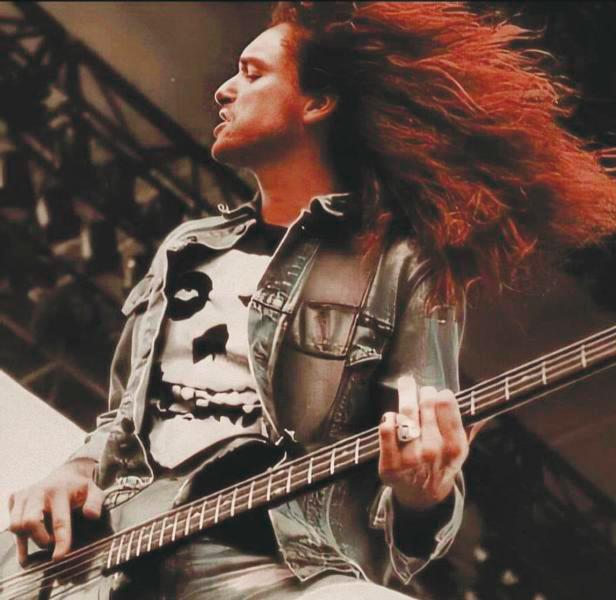
Cliff Burton recorded Kill ‘Em All, Ride the Lightning, and Master of Puppets in barely four years with Metallica, forever altering the world of metal bass. Before his death in a band bus accident in 1986, Burton attained a legendary reputation for his lightning-fast fingers, eloquent soloing, and “lead bass” role.
His bass opening to For Whom The Bells Toll was one of his most memorable moments, an explosive display of classical-music improvisation and wah-wah lyricism, while the prelude to Damage Inc. and the middle of Orion demonstrated how beautiful thrash music could be. Even after his passing, his ideas remained influential on the band.
Geezer Butler (Black Sabbath)
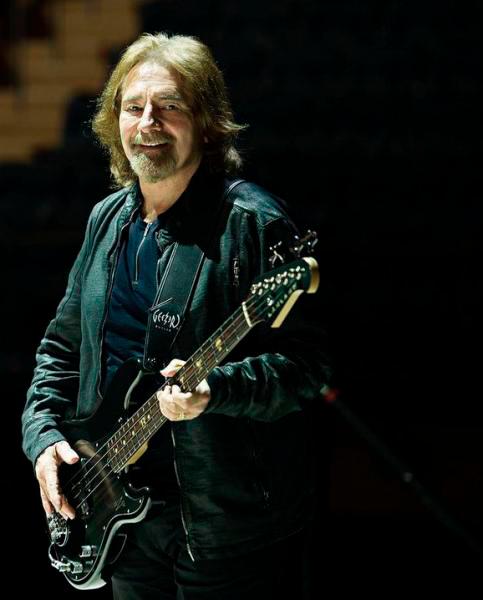
Shortly after joining Black Sabbath, Geezer Butler switched from rhythm guitar to bass and divined his own freewheeling style. Since he’d never played the sort of four-on-the-floor bass that defined Sixties rock, he came to the instrument with a guitarist’s sensibility, adding harmonies and ornate filigrees to guitarist Tony Iommi’s parts.
The secret to Black Sabbath’s impact is how Butler and Iommi stacked their instruments for a big, walloping sound. On War Pigs, Butler played a bluesy lead underneath Iommi’s drawn-out riffs, and by the middle of the song, when Iommi solos, Butler plays his own jazzy, Jack Bruce–inspired fingerpicked solo whenever the guitarist holds a note.
John Deacon (Queen)
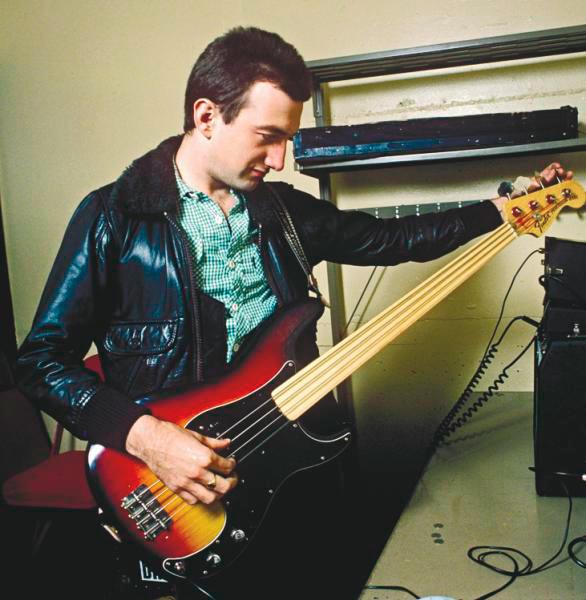
John Deacon was once listed as ninth on the list of the Top 40 Greatest Bassists, and two of his most famous basslines, Under Pressure and Another One Bites The Dust, were ranked seventh and second, respectively, on the list of the Top 40 Coolest Basslines Ever.
Born in Leicestershire in 1951, John Deacon began his career as a guitarist for The Opposition in 1965, before moving to bass in 1966 when a new rhythm guitarist was hired. He departed the band in 1969 after relocating to London. While studying electronics at Chelsea College in 1971, he auditioned for Mercury, May, and Taylor, who had created Queen the previous year, and was admitted into the band.
In The Opposition, Deacon used an Eko bass before switching to a Rickenbacker 4001. Throughout most of Queen’s career, he favoured a Fender Precision Bass that underwent numerous physical modifications. Towards the end of the group’s history, he played a Roger Giffin-designed bespoke bass.



